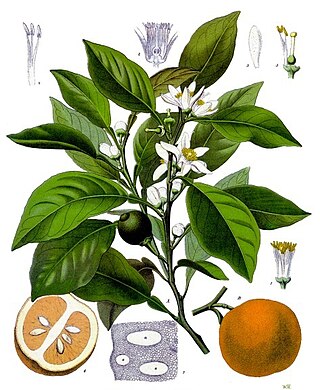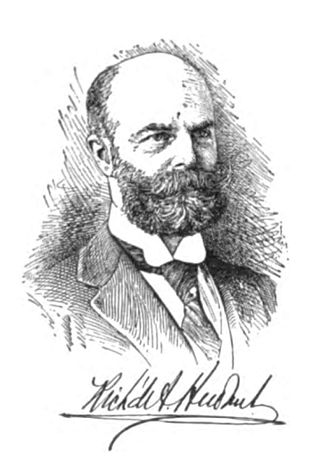
Grasse is the only subprefecture of the Alpes-Maritimes department in the Provence-Alpes-Côte-d'Azur region on the French Riviera. In 2017, the commune had a population of 50,396.
Perfume is a mixture of fragrant essential oils or aroma compounds (fragrances), fixatives and solvents, usually in liquid form, used to give the human body, animals, food, objects, and living-spaces an agreeable scent. Perfumes can be defined as substances that emit and diffuse a pleasant and fragrant odor. They consist of manmade mixtures of aromatic chemicals and essential oils. The 1939 Nobel Laureate for Chemistry, Leopold Ružička stated in 1945 that "right from the earliest days of scientific chemistry up to the present time, perfumes have substantially contributed to the development of organic chemistry as regards methods, systematic classification, and theory."

François Coty was a French perfumer, businessman, newspaper publisher, politician and patron of the arts. He was the founder of the Coty perfume company, today a multinational. He is considered the founding father of the modern perfume industry.

Orris root is the root of Iris germanica and Iris pallida. It had the common name of Queen Elizabeth Root. It is commonly used as a fixative and base note in perfumery and as a botanical in gin.

Neroli oil is an essential oil produced from the blossom of the bitter orange tree. Its scent is sweet, honeyed and somewhat metallic with green and spicy facets. Orange blossom is also extracted from the same blossom and both extracts are extensively used in perfumery. Orange blossom can be described as smelling sweeter, warmer and more floral than neroli. The difference between how neroli and orange blossom smell and why they are referred to with different names, is a result of the process of extraction that is used to obtain the oil from the blooms. Neroli is extracted by steam distillation and orange blossom is extracted via a process of enfleurage or solvent extraction.

Richard Alexander Hudnut was an American businessman recognized as the first American to achieve international success in cosmetics manufacturing. The company once maintained separate US and European headquarters on Fifth Avenue in New York City and on the Rue de la Paix in Paris, respectively.

The word perfume is used today to describe scented mixtures and is derived from the Latin word per fumus. The word perfumery refers to the art of making perfumes. Perfume was refined by the Romans, the Persians and the Arabs. Although perfume and perfumery also existed in East Asia, much of its fragrances were incense based. The basic ingredients and methods of making perfumes are described by Pliny the Elder in his Naturalis Historia.
Cosmetics & Toiletries (C&T) is a magazine focusing on research and development in the cosmetics and personal care industry. The magazine is published by Allured Business Media. It is delivered to 97 countries on a monthly basis, and is geared toward formulators, scientists, researchers, chemists and R&D management in the industry. The magazine is available in both print and online magazine format. The headquarters is in Northbrook, Illinois.

Eau de toilette is a lightly scented perfume. It is also referred to as aromatic waters and has a high alcohol content. It is usually applied directly to the skin after bathing or shaving. It is traditionally composed of alcohol and various volatile oils. Traditionally these products were named after a principal ingredient; some being geranium water, lavender water, lilac water, violet water, spirit of myrcia and 'eau de Bretfeld'. Because of this, eau de toilette was sometimes referred to as "toilet water".

Joy is a perfume created for Parisian couturier Jean Patou by perfumer Henri Alméras in 1929. It is considered to be one of the greatest fragrances created and is a landmark example of the floral genre in perfumery. It is no longer produced.

S by Shakira is the first woman's fragrance by Colombian singer songwriter Shakira. Developing an interest in perfumery and scents, Shakira signed an agreement with international fashion company Puig to create a line of beauty and personal care products. S by Shakira is an amber perfume which combines scents of various exotic sources like sambac jasmine, sandalwood, and vanilla. The bottle of the perfume is made of treated glass which reflects light at different angles; it does not have a cap and instead utilises a key-like mechanism to stop the flow of the perfume. Shakira launched S by Shakira at a press release in Madrid, Spain, in June 2010, and it was sent to retail stores in September 2010. Critics praised the scent of S by Shakira, but there was criticism regarding the design of the bottle. It was nominated for a FiFi Award in 2011.

Elixir is a women's fragrance by Colombian singer songwriter Shakira, developed in a collaboration with international fashion company Puig. After the release of her first two fragrances, Puig enlisted several perfumers to work on Shakira's third fragrance, which she claimed would capture her "most sensual and exotic side." The final product was Elixir, an amber perfume based on various spicy and woody sources. The flacon of the perfume is inspired by apothecary bottles and is made to resemble a magical potion, featuring a light golden colour scheme.

Stephen V. Dowthwaite is an English perfumer, perfumery educator, programmer and writer. He is the founder of PerfumersWorld, a resource for professional perfumers. He is known for developing The ABC's of Perfumery, a comprehensive system of odour classification and perfume creation, and a training course in The Art and Technology of Perfumery.

John Blocki was one of America's pioneer perfumers. His perfumes and cosmetics were widely sold and his unique presentation earned him a U.S. patent for perfumery packaging. He was well-known in the trade for his leadership and commitment to the advancement of the American perfume industry.

Kannauj Perfume, also known as Kannauj Ittar, is a traditional Indian perfume made in the city of Kannauj in Uttar Pradesh.
Piesse & Lubin was a luxury perfumery in London. Established in 1855, the company ceased operations in the 1950s.
George William Septimus Piesse, known as Septimus Piesse, was an English chemist and perfumer. Piesse was a leading author and innovator of modern perfume ideas, inventing the concept of notes in perfumery that are still used universally today. He was the co-owner of Piesse and Lubin, a perfume house that created some of the most popular scents of its day.

Adolph Goetting was a German chemist who founded the perfume company "Goetting & Co." The company was later purchased in 1896 by David H. McConnell, where it became part of the California Perfume Company, now called Avon Products.
Anne-Marie Saget is a French perfumer. She is an influential creator and leading authority on aromatic raw materials of natural origin. She began her career at Guerlain, working alongside Jean-Paul Guerlain with whom she created classic perfumes including Nahema (1979), Derby (1985) and Samsara (1989). Her subsequent work at Mane SA and International Flavors & Fragrances (IFF) saw her specialize in the trade of natural materials. She later sourced rare perfumery, cosmetic and aroma-therapeutic ingredients from the Himalayas and Southeast Asia, assisting communities there to ensure fair trade, sustainable development and geographic protectionism.














